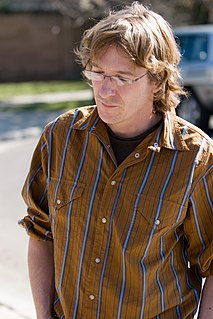A Quote by James G. Stavridis
Sleep is a key part of the requirements for resilience and good decision-making.
Quote Topics
Related Quotes
Our relationship with sleep is currently in crisis, but we're also living in a golden age of sleep science - revealing all the ways in which sleep and dreams play a vital role in our decision-making, emotional intelligence, cognitive function, and creativity. Every week, new research reveals how vital sleep is to our health, happiness, job performance, and relationships.
My job is exhilarating. It's challenging. I find that the governance part of it, the decision making part of it - actually comes - comes pretty naturally. I think I've got a great team. I think we're making good decisions. The the hardest thing about the job is staying focused. Because there's so many demands and decisions that are pressed upon you.
In separating out, say, legal and moral requirements, I tend to work with paradigms rather than strict divisions - eg, paradigmatically, legal requirements are jurisdictionally bound whereas ethical requirements are aspirationally universal; ethical requirements focus especially on intentions whereas legal requirements focus primarily on conduct; ethical requirements take priority over legal requirements; and so on.
Making decisions was the painful part for me, the part I agonized over. But once the decision was made, I simply followed through—usually with relief that the choice was made. Sometimes the relief was tainted by despair, like my decision to come to Forks. But it was still better than wrestling with the alternatives.



































